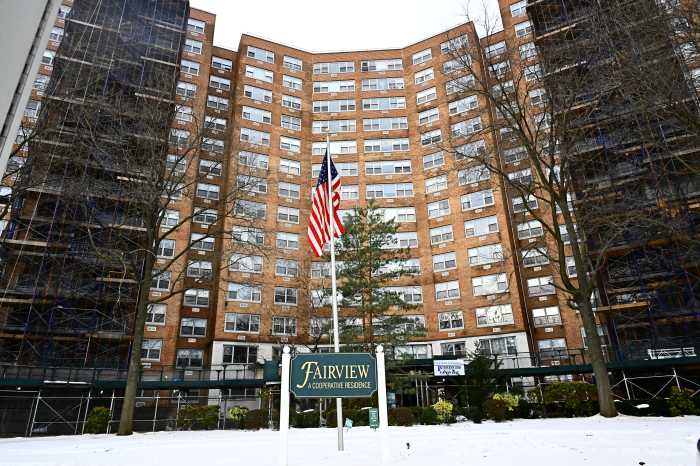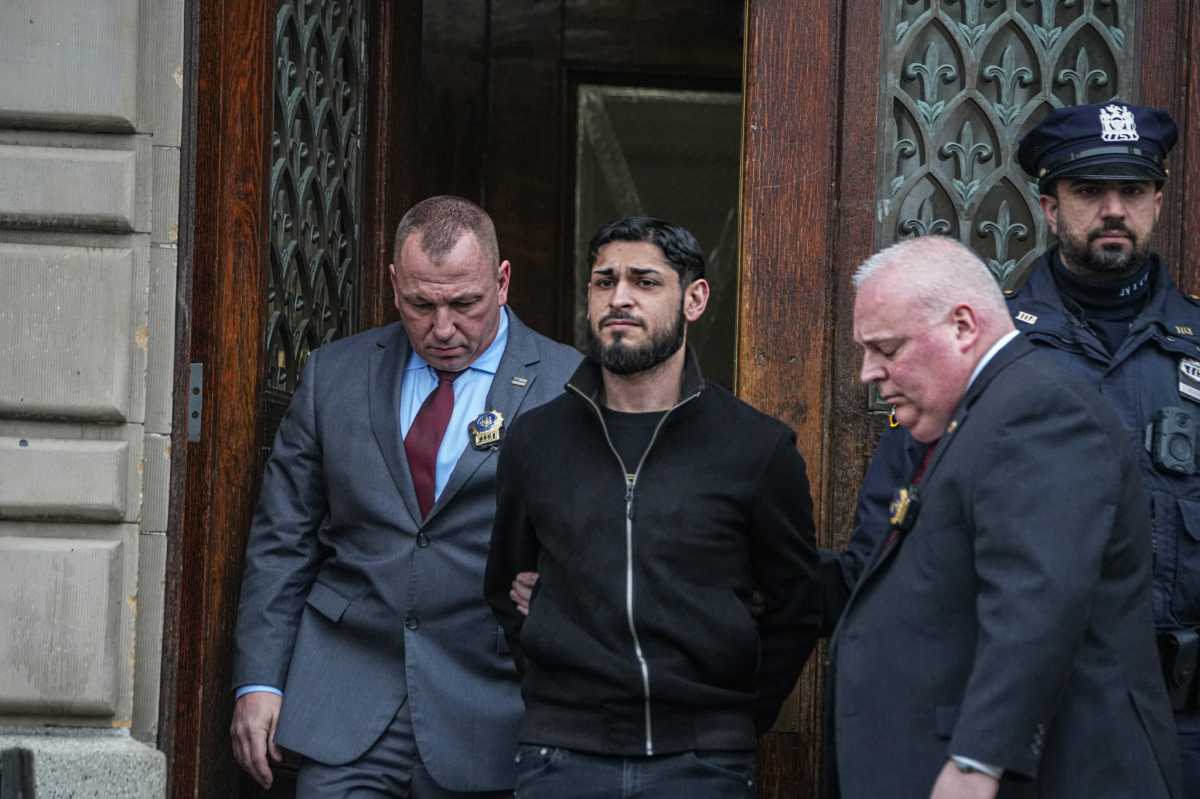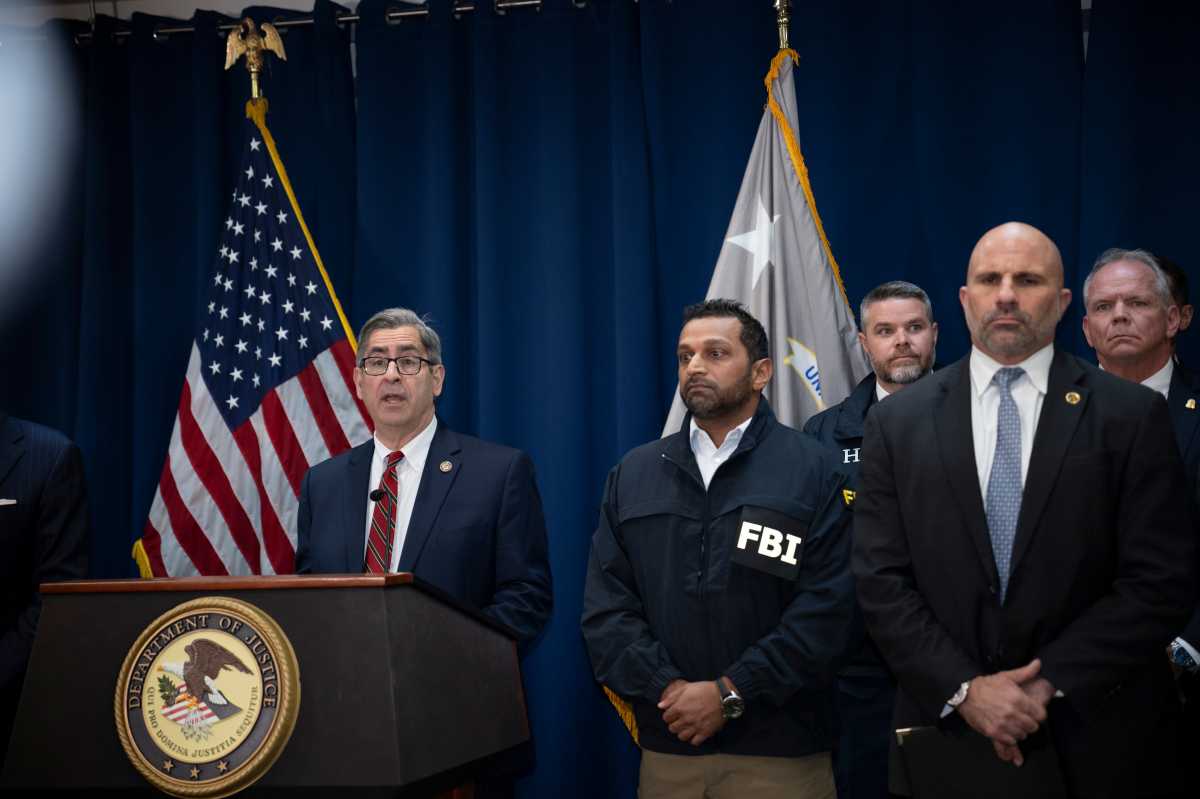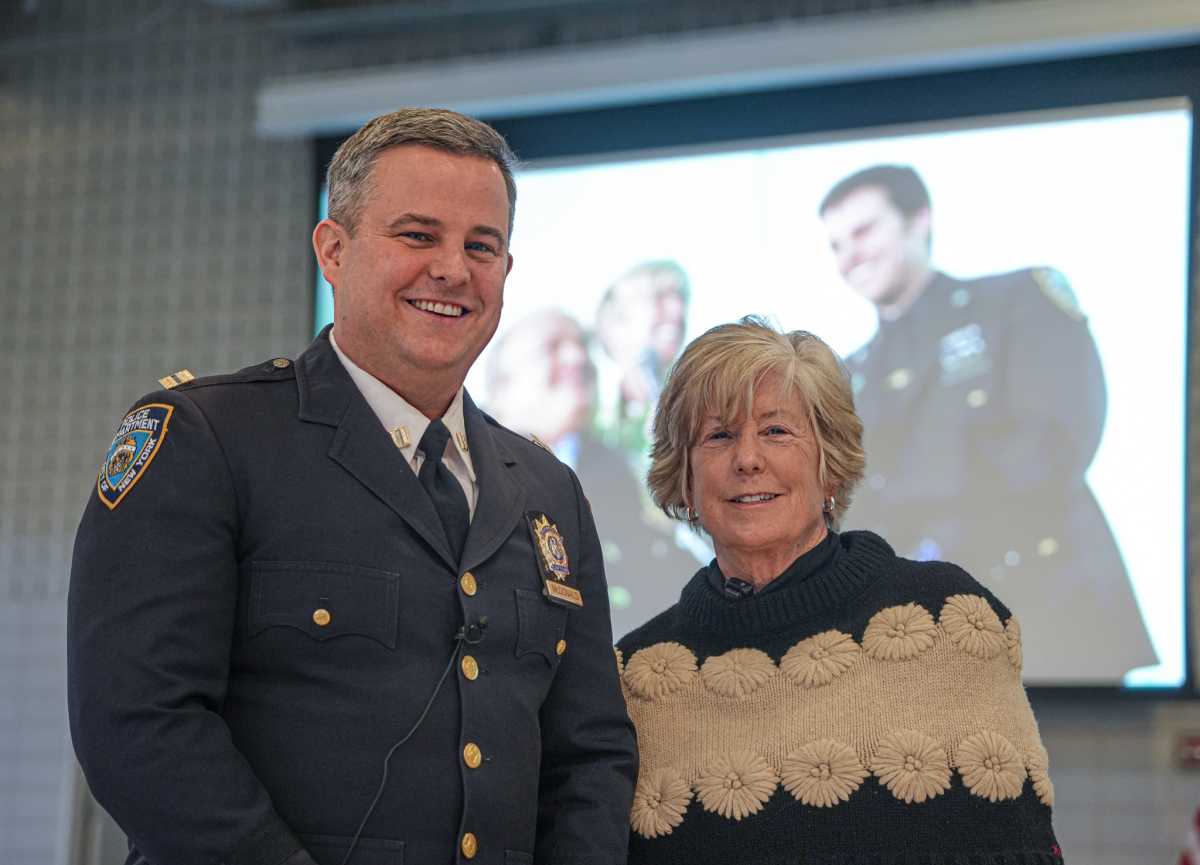By Mark Hallum
Kevin Lacz, a former Navy SEAL who served with the famous Chris Kyle and played himself in the film of Kyle’s autobiography, “American Sniper,” made an appearance at Northwell Health in honor of Memorial Day and to promote PTSD awareness.
Sgt. First-Class Clint Castro, a client of Northwell being treated for post-traumatic stress, met with Lacz and discussed how PTSD has affected his life and how he has benefitted from treatment.
Lacz was part of SEAL Team Three and deployed twice to Iraq, where his life intersected with Chris Kyle, a Navy SEAL sniper who was awarded a Silver Star and several Bronze Stars for his service in that country. Kyle, who did charitable work for veterans following his military service, was killed in 2013 by a former soldier he was helping to rehabilitate.
“He was a mentor to myself and other new guys in the platoon which became pretty important when we deployed in 2006 in Ramadi where sniper over-watches were pretty much the staple of our repertoire,” Lacz said of his time with Chris Kyle. “So learning from Chris helped me get over a learning curve that a lot of snipers have but aren’t afforded time.”
Since leaving the Navy, Lacz has started a career in the health care field and written a book, “The Last Punisher: A SEAL Team THREE Sniper’s True Account of the Battle of Ramadi,” set for release in July.
“It’s important to focus on PTSD, what we need to do our due diligence and flush it out as much as we can. There’s a lot of resources available, family members need to be just as accommodating. But it also falls on a lot of veterans to reach out. Help is available, communication is important. The more we facilitate that environment and make it easy for veterans to reach out, I think we’ll have better success with PTSD.”
Castro is on active duty with the U.S. Army and currently lives in Fresh Meadows and is receiving treatment for PTSD at Northwell. While serving in Iraq, Castro said he was in charge of a team of medical responders who dealt with “immediate contact” while deployed. After coming home, his wife began noticing uncharacteristic behavior in Castro. In 2014, they sought help which eventually brought them to Northwell.
“You have to live through PTSD to know what the environment can do for you,” Castro said. “I, being a soldier, would always tell a civilian, ‘I don’t need your help, what can you do for me?’ In this case, the tables have been turned. I do need their help and there’s a lot they can do for me.”
According to Lacz, the most important message conveyed in “American Sniper” about veterans was that it brought attention to the fact that war stories don’t end. Soldiers often spend their entire lives grappling with their experiences.
Lacz also mentioned that although 22 former servicemen and women commit suicide each day, only about a quarter of combatveterans have PTSD, contradicting the misconception that all veterans come away with scars, which is telling about how poorly understood the condition is.
Reach reporter Mark Hallum by e-mail at mhall

































